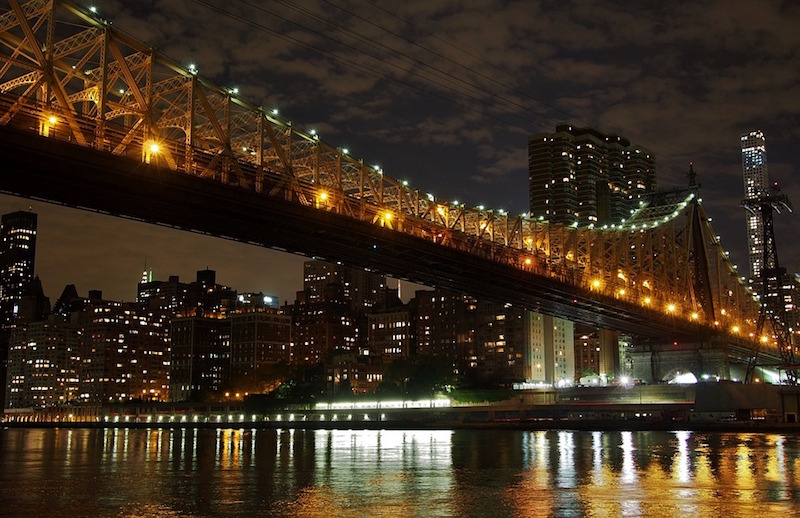Cornell Tech, under construction on Roosevelt Island in New York City, recently announced details of its plan to achieve Net Zero energy efficiency for The Bloomberg Center.
Designed by the architecture firm Morphosis, The Bloomberg Center is the first academic building to be constructed on the Cornell Tech campus. The first phase of this development will open this September.
The campus plans include photovoltaic arrays, geothermal ground source heat pumps, an energy-efficient facade balancing the ratio between transparency and opaqueness to maximize building insulation and decrease energy demand, and smart building features that will monitor lighting and plug load use. The strategy to achieve a low energy building is through a stepped approach, prioritizing reduction in energy demand through load reductions and maximizing passive and energy efficient design, as well as using renewable energy to power the building systems.
There are 80 closed-loop geothermal wells, each 400 feet deep, that were drilled below the main campus public open space. The ground-source heat pumps will be used with an active chilled-beam system.
An acre-sized photovoltaic array tops The Bloomberg Center and neighboring The Bridge building. The building designs incorporate the panels as an integral architectural feature. The array on The Bloomberg Center also provides building shading.
Related Stories
| Mar 22, 2012
Bill would reintroduce “opt-out” provision in lead paint law
The Lead Exposure Reduction Amendments Act of 2012 (S2148) would restore the "Opt-Out" provision removed from the Environmental Protection Agency's Lead Renovate, Repair and Painting (LRRP) rule in April 2010.
| Mar 15, 2012
New Florida building code establishes flood and storm surge provisions
The new 2010 code establishes minimum design and construction requirements to protect buildings from wind, rain, floods, and storm surges.
| Mar 15, 2012
Illinois city rejects international code due to home sprinkler requirement
Macomb, Illinois aldermen voted to recommend that the city not adopt 2012 international building and residential code standards requiring the installation of overhead sprinkler systems in newly constructed one-family and two-family homes.
| Mar 15, 2012
Tenant advocates propose licensing landlords in New York City
With thousands of New York City rental units posing potential dangers to tenants, city advocates are proposing measures to make landlords improve building safety.
| Mar 15, 2012
Construction industry a big winner in federal small disadvantaged business procurement
Last year, only 5% of federal contract dollars went to small disadvantaged businesses. Construction and facilities support firms were the biggest beneficiaries.
| Mar 15, 2012
ANSI approves new fall protection standards
The American National Standards Institute (ANSI) has approved two American Society of Safety Engineers' (ASSE) standards addressing fall protection.
| Mar 8, 2012
Engineering innovation provides new option for meeting seismic codes in skyscrapers
Two University of Toronto engineers have developed “viscoelastic-energy-dissipating dampers” to replace many of the heavy concrete beams used in tall structures.
| Mar 8, 2012
CSI webinar on building code compliance March 22
A March 22 webinar will provide an overview of a 28-step process during the design of a building to ensure compliance with building codes.















